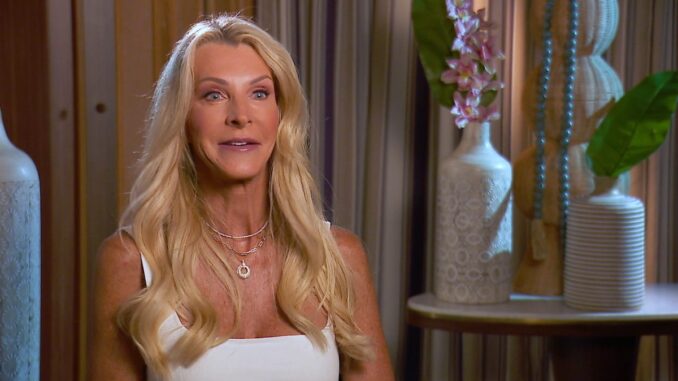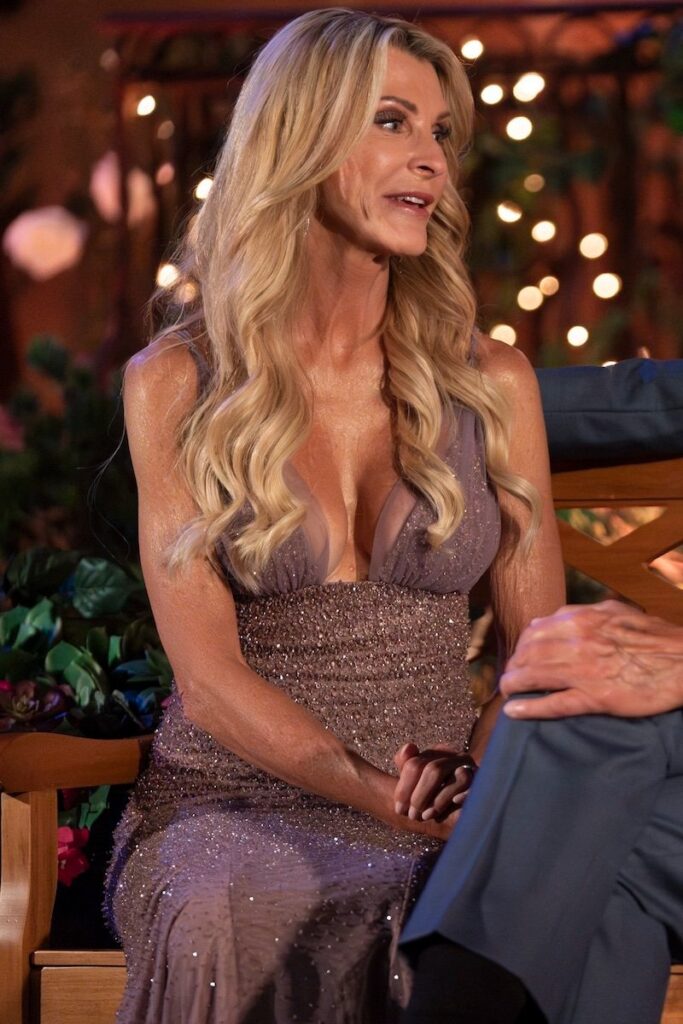
Joan Vassos, the beloved lead from The Golden Bachelorette season 1, recently revealed that she almost quit the show—not just once, but twice. While fans knew that she considered leaving due to her mother’s illness, what they didn’t see was her internal struggle with still being in love with her late husband, John.
In an industry where reality TV often prioritizes drama over well-being, Joan’s experience marks a potential shift in The Bachelor franchise’s approach to mental health. With the guidance of The Golden Bachelorette’s on-set psychiatrist, she found a way to stay, continue her journey, and ultimately get engaged to Chock Chapple. But does this signal real progress for the franchise, or is it simply a band-aid over years of neglecting contestants’ emotional well-being?
Joan’s Internal Battle: Letting Go Without Forgetting
During a recent episode of The Two Jersey Js podcast, Joan shared that in week three of filming, she seriously considered leaving. The weight of her past love and the idea of moving on overwhelmed her. “I almost quit,” she admitted.
Joan hadn’t yet spoken to the producers about her doubts, but she did reach out to the show’s psychiatrist. She asked, “I don’t know if I can keep doing this. I’m still in love with John. How do you do this?” The response she received changed everything.
Rather than telling Joan to suppress her feelings, the psychiatrist reassured her that she didn’t have to choose between her past and her future. “Picture John as a balloon in one hand and this new person as a balloon in the other. You don’t have to let go of one to hold the other. There’s room for both.”
This simple yet powerful metaphor allowed Joan to reframe her journey. Instead of feeling guilty for loving someone new, she began to see that her heart had space for both love stories.
A Rare Example of the Franchise Supporting Mental Health

In past seasons, The Bachelor franchise has often been criticized for exploiting contestants’ struggles rather than supporting them. Contestants have been pushed to emotional breaking points for the sake of creating dramatic television.
Recent examples include:
- Jenn Tran’s Bachelorette Finale – Jenn was blindsided on live television when the show forced her to watch footage of her own failed engagement, moments after revealing her heartbreak.
- Bachelor in Paradise’s “Bonfire of Truth” & “Comedy Roast” Segments – These activities led to contestants being publicly humiliated and emotionally drained for entertainment.
- Clayton Echard’s “Villain Edit” – The franchise intentionally portrayed Clayton as a villain, amplifying drama at the expense of his mental well-being. Afterward, he opened up about how the backlash severely impacted his mental health.
The fact that The Golden Bachelorette provided Joan with meaningful psychological support is a refreshing shift. Instead of dismissing her concerns or pressuring her to continue filming for the sake of the show, she was given tools to navigate her emotions in a healthy way.
Is This a Sign of Real Change?
Joan’s experience proves that the franchise can prioritize mental health when it chooses to. But is this a lasting shift, or just an isolated case?
For real change, the franchise must make mental health support a standard practice—not just for leads like Joan but for all contestants. Reality TV doesn’t have to come at the expense of emotional well-being. If The Bachelor producers truly care about their participants, Joan’s journey should set the standard moving forward.
Her story is a reminder that finding love after loss is complex, and that emotional struggles shouldn’t be ignored for the sake of “good television.” By embracing vulnerability and offering genuine support, The Golden Bachelorette may have taken a small but meaningful step in the right direction.